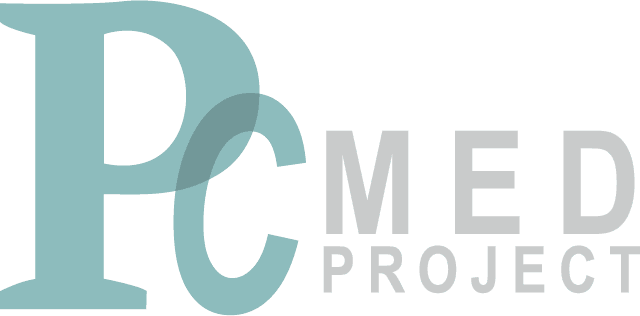Mild Cognitive Impairment Management
SUMMARY:
Mild cognitive impairment (MCI) involves cognitive decline that is greater than expected for an individual’s age and education level, but in contrast to dementia, does not interfere with instrumental activities of daily living (IADLs). Prevalence increases with increasing age, with 1 in 4 adults between 80 to 84 years having MCI. Patients with MCI are at a greater risk of progression to dementia, but some patients may remain stable or return to neurologically intact. While pharmacologic therapies are lacking for MCI, proper diagnosis, counseling, and long-term planning are crucial to help prevent adverse events related to cognitive decline.
ASSESSMENT AND DIAGNOSIS:
- Mild cognitive impairment may present as
- Amnestic MCI: Memory dysfunction is the predominant symptom
- Nonamnestic MCI: Impairment of other cognitive features dominates (e.g., language, visuospatial, executive)
- Etiology of MCI includes
- Idiopathic or neurodegenerative (e.g., a precursor to Alzheimer Disease)
- Metabolic causes (e.g., B12 deficiency, hypothyroidism)
- Psychiatric disorders (e.g., depression)
- Systemic (e.g., syphilis, HIV)
- Vascular (e.g., stroke)
- MCI should be assessed for when the patient or a close contact voices concern over the patient’s memory or cognition
- Subjective complaints should be followed up with history taking and a validated cognitive assessment tool to assess for cognitive impairment
- Commonly used options for cognitive assessment include: MoCA | Mini-Cog | MMSE (see ‘Learn More – Primary Sources’ below)
- Note: “To maintain MoCA’s superior validity”, a 1-hour course is mandatory to administer either paper forms or MoCA App | The course is designed for healthcare professionals of all backgrounds with the goal of becoming “more confident in administering MoCA and explaining results to patients and families”
- Patients who screen positive for MCI on a cognitive test should having further testing to make a formal diagnosis (e.g., neuropsychiatric testing)
- Patients with memory or cognitive dysfunction that interferes with IADLs or ADLs should instead be evaluated for dementia
- Biomarkers are currently being studied to help with risk stratifying patients with MCI, but to date there are no acceptable biomarkers to monitor in patients with MCI
- Patients interested in biomarker research can be referred to clinical trials if feasible (e.g., ClinicalTrials.gov)
MANAGEMENT:
General guidelines
- AAN guideline on MCI focuses on treatment of idiopathic and neurodegenerative MCI
- Any patient with MCI should be referred to a provider with experience treating cognitive dysfunction
- Counsel MCI patients on the increased risk of developing dementia, and encourage them participate in long-term planning (e.g., living will, advance directive, MPOA) in case they no longer have the capacity to make these decisions in the future
- Assess and treat patients for modifiable risk factors
- Sleep apnea
- Depression | Insomnia
- Metabolic disturbances (e.g., B12 deficiency, hypothyroidism)
- Substances (e.g., antihistamines, opiates, alcohol)
- Patients should be reassessed regularly to monitor for improvement or decline in cognitive function
- No drugs are FDA approved for MCI, but there are FDA approved medications for Alzheimer Disease that patients would qualify for if their diagnosis changes
Pharmacologic Therapies
- To date, no good evidence exists for pharmacologic or dietary supplement therapy for MCI including:
- Donepezil (Aricept)
- Galantamine (Razadyne) | Rivastigmine (Exelon)
- Dietary supplements (e.g., flavanoid drinks, Vitamin E/C, homocysteine lowering B vitamins)
- If a doctor chooses to prescribe cholinesterase inhibitors (e.g., Donepezil (Aricept), Galantamine (Razadyne), Rivastigmine (Exelon)) then they should
- Explain that this is done off label AND
- There is no evidence that shows benefit on cognitive outcomes or reduction in progression from MCI to dementia
- Clinical trials may be an avenue to access not yet approved pharmacologic therapies, and interested patients should be referred
Non-pharmacologic Therapies
- Exercise is the cornerstone of treatment for MCI and the only intervention with compelling evidence for its use
- Treatment with exercise training twice weekly for 6 months is likely to improve cognitive measures, and has general health benefits with limited risks
- Cognitive therapies/cognitive training may be beneficial and should be offered to patients
KEY POINTS:
- Clinicians should assess for MCI in the appropriate setting and not attribute memory changes and other cognitive dysfunction to a “normal” aging process
- MCI prevalence increases with age and is a risk factor for progression to dementia
- There is no recommended pharmacologic therapy for MCI and current treatment recommendations focus on exercise and cognitive therapies
Learn More – Primary Sources
AAN Practice guideline update summary: Mild cognitive impairment

SPECIALTY AREAS
- Alerts
- Allergy And Immunology
- Cancer Screening
- Cardiology
- Dermatology
- Diabetes
- Endocrine
- ENT
- Evidence Matters
- General Internal Medicine
- Genetics
- GI
- GU
- Hematology
- ID
- Medical Legal
- Mental Health
- MSK
- Nephrology
- Neurology
- Now@PcMED
- Oncology
- PcMED Connect
- PrEP Resource Center
- Preventive Medicine
- Pulmonary
- Rheumatology
- Test Your Knowledge
- Vaccinations
- Women's Health
- Your Practice

